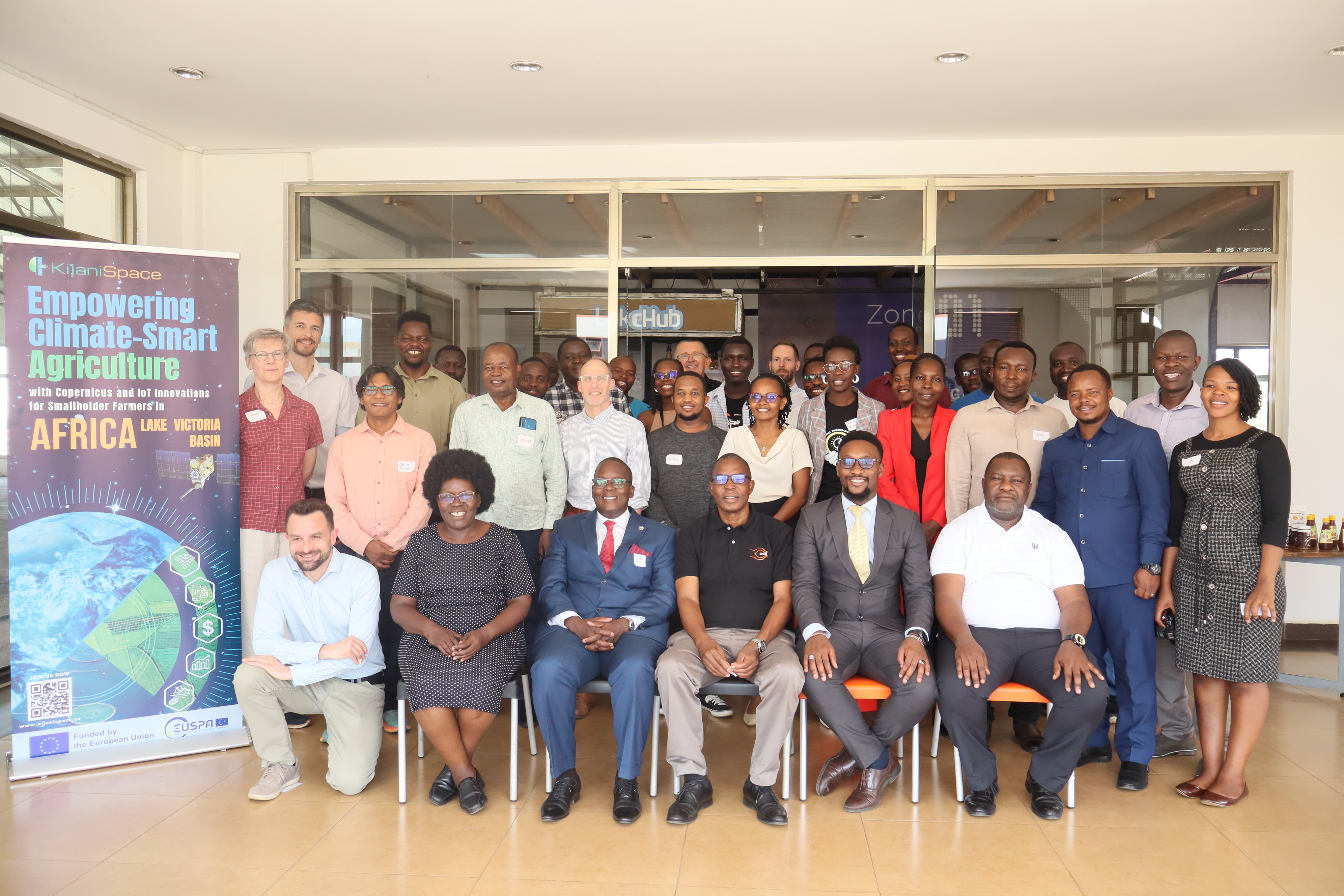
Lakehub, KijaniSpace Form A Multi-national Consortium Working Towards A Greener Future

New technologies are revolutionizing smallholder farming across Africa. To fully realize the potential of our farms, we need to understand how these new technology solutions can help revolutionise climate-smart agriculture in the Lake Victoria Basin.
For two days, KijaniSpace invited key stakeholders from East Africa to the Lake Victoria Basin Climate-Smart Agriculture Dialogue at LakeHub. The workshop explored how Copernicus Earth Observation Data and technologies such as Meteoblue's weather prediction data platform, AquaRech Limited’s IoT water temperature sensor, Penn State University’s Humanitarian Engineering and Social Entrepreneurship (HESE)'s LakeVision, among other emerging climate technologies, can advance smallholder farming in Africa.
The Dialogue follows the formation of the Kijani Space Project, a groundbreaking partnership between 13 partners drawn from Africa and the European Union. The partners - LakeHub Foundation, Plan4all, Smart & Lean Hub Oy, Waziup e.V., Agape Innovations Limited, Africa Bioenergy Program (APBL), Kenya Marine and Fisheries Research Institute, Small Industries Development Organization (SIDO), Lake Victoria Basin Commission, Mwalimu Julius K. Nyerere University of Agriculture and Technology, HSRS and Meteoblue AG - will be spearheaded by INNOTEC21 GmbH (consortium lead) to empower climate-smart agriculture and sustainable development through cutting-edge technologies.
The Kijani Space Project (Green Space in Swahili) is an initiative built on the success of previous African Union - European Union collaborations whose vision is to leverage the use of Copernicus Earth observation data and the Internet of Things (IoT) to enhance agricultural practices, improve sustainability and the creation of green employment opportunities across Africa and beyond, and address some of the most pressing challenges experienced in the agricultural sector. The project is being piloted in Kenya, Tanzania and Uganda and will run for 3 years starting October 2024.
%202.png)





